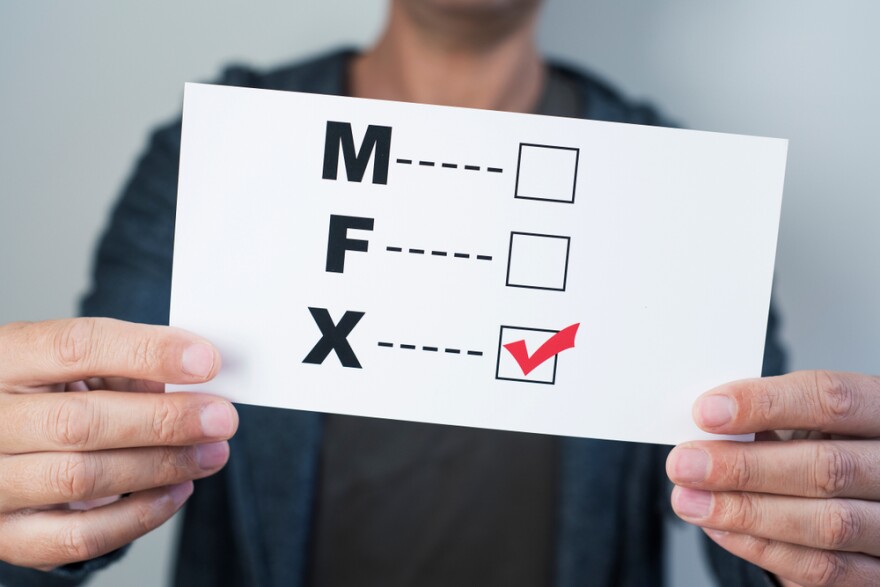When the first COVID-19 cases were reported in Monroe County in March, Penny Sterling was struck by a detail.
The reports were broken down by a gender binary: male and female. Sterling, a transgender woman, was left with an unsettling question: If she died of the coronavirus, how would she go down in the records?
“Would they let me be the gender that I am or the gender that I was assigned at birth?” Sterling said. “Because I have very strong views on that. And furthermore, what about the nonbinary folk?”
The data’s limitations come from the state, said Dr. Michael Mendoza, Monroe County's public health commissioner.
“This all rolls up to the state surveillance system, which has sex: male or female. And obviously we know that’s a limited way of looking at a demographic, but that’s all we get,” said Mendoza. “It’s a national limitation. I’m not aware of any state or local health department that has a very good way of doing that.”
However, those limitations are changing in New York state for both nonbinary and trans people.

Milo Primeaux, an LGBTQ civil rights attorney, had been working on a case to change client Aisha Cruse's birth certificate to the nonbinary gender X, something Cruse had been trying to do for two years.
Primeaux’s lawsuit was filed in March, just before the courts closed in response to the surge of COVID-19 cases. So it sat for about three months, until the courts reopened and it was assigned to a judge.
“Almost immediately I got a call from the assistant attorney general who was representing the state saying that, ‘no worries,’ that they would change Aisha’s birth certificate and also Vital Records had updated their policy,” said Primeaux.
The date on the state Vital Records Department's new policy, he said, was June 12, the same date as their conversation.
Before this, a policy change in March allowed transgender minors to correct the sex designation on their birth certificates to be consistent with their gender identity.
And in 2019, New York City Mayor Bill de Blasio recognized a nonbinary gender X on birth certificates for residents. Yet this is the first time that a statewide policy has been instated.
The state attorney general's office confirmed that the Vital Records Department's policy was changed.
That shift then created a chain reaction for the state health department. With a third gender legally recognized statewide, the COVID-19 records, as well as other health records, can expand to include more people who do not identify as male or female.

Nearly a third of transgender people in the U.S. lack regular access to health care, a survey by NPR, the Robert Wood Johnson Foundation, and Harvard T.H. Chan School of Public Health found.
Erin Silk with the New York State Department of Health said that by including gender X, barriers to accessing health care services based on gender will be removed.
Silk also said that the health department is committed to expanding data collection to include gender X in all areas.
The goal, she said, is to update the form the state lab uses for sample analysis to include not only nonbinary but also transgender options. However, it's unclear when New Yorkers will see this change.
While it’s the first time the state will include this new data, it’s not the first time this issue has come up with communicable diseases. With HIV and AIDS studies in the past, Primeaux said, there wasn’t an accurate account of the impact on trans men and women.
“When folks are not counted accurately as being at risk or being affected by communicable diseases, what that means is there’s an entire community that’s not being properly outreached to and served in a way to make sure they’re getting the services and the treatment that they need,” he said.
Sterling said that while she finds the change encouraging, she wants it to take effect retroactively so that everybody tested could be accurately identified.
“If the transgender population is not counted, if the nonbinary population is not counted for the first six or seven months during the first wave of the pandemic, how are they going to know how it was affected?” Sterling asked. “And how are they going to set policy going forward?”



